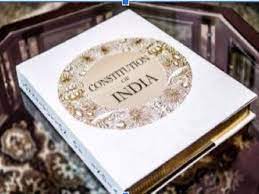The Karnataka High Court has ordered the state government and the Bruhat Bengaluru Mahanagara Palike (BBMP) to issue Transferable Development Rights (TDR) Certificates to a group of petitioners who surrendered their land to the corporation several years ago and have yet to receive TDRs in lieu of compensation.
In the case of D. V. Ventakeshappa vs The Commissioner, Bhurat Bengaluru Mahanagara Palike (Writ Petition No.1402/2021), a single judge bench led by Honourable Justice Krishna S Dixit allowed a batch of petitions, saying, “The petitioners must receive TDR Certificates from the Respondent-State and the BBMP within three months. If the BBMP continues to delay, the petitioners will be charged Rs.1,000/- per week per square meter of relinquished lands, in addition to facing contempt charges.”
“It is open to the petitioners to seek reconveyance of surrendered lands, if they so desire,” it continued, “and if representations to this effect are made, the respondent BDA shall reconvey the surrendered lands within eight weeks, failing which the same cost as prescribed above shall be paid, in addition to risking contempt action.”
It was clarified that the above directions will only take effect if petitioners file an affidavit of Rs.100/- non-judicial stamp paper with the Registry of this Court and the BBMP within four weeks stating that the BBMP has been in exclusive possession of the subject lands and that they or anyone claiming under them shall not interfere with the same in any circumstance, nor claim any compensation, damages, or return of the lands.
Facts of the case are that the petitioner had approached the court seeking an order directing the respondent BBMP to issue ‘Transferable Development Rights’ (hereafter TDR) or ‘Developmental Rights Certificates’ in respect of lands they had relinquished to the BBMP years ago for the formation or widening of roads.
Opposing the petitions, It was proposed by BBMP that these lands be returned to the relinquishes because they are no longer needed. Even if the subject lands were not located within its territorial jurisdictional limits, they could not be used and thus no TDR Certificates could be issued.
To begin, the court stated, “In most cases, the state acquires private property through either voluntary purchase or compulsory acquisition, depending on the law. The latter is, among other things, subject to adequate remuneration.”
The government of Karnataka, it continued, had promulgated certain terms and conditions for the grant of Transferable Development Rights by Municipal Corporations via Notification dated 18.1.2005.
After the relinquishment, the BBMP claimed that petitioners had no say in what the BBMP did with the lands. The issuance of TDR certificates is not contingent on the BBMP providing proof of land use for the stated purpose.
“If the BBMP’s contention is accepted, petitioners who have lost their lands will not receive either compensation or TDR, and thus the BBMP’s action will amount to forfeiting private property without authorization of law, and thus is in violation of the constitutional mandate enacted in Article 300A,” the Court concluded.
Doctrine of Estoppel and Promissory Estoppel:
The court stated, “Noting the facts of the case,” “Petitioners, acting on the State’s statutory policy and believing the Government’s and BBMP’s words, have surrendered valuable lands, thereby altering their position to their detriment and to the benefit of the BBMP. As a result, there is a strong case for invoking the doctrine of estoppel, which was codified in Section 115 of the Indian Evidence Act of 1872.”
It added, “Years have passed since these lands were given up. The petitioners have made a classic case for invoking promissory estoppel as well. The grant of relief is subject to a choate cause of action.”
The court also dismissed the BBMP’s claim that the lands would be returned to the owners once they were no longer needed. According to the bench, this claim is both unjustified and unconscionable. It was noted “Petitioners gave up their lands years ago for free, with the TDR as the guaranteed recompense. They did it not for the sake of reclaiming the lands, but for the sake of saving time.”
It added, “The BBMP could have included a condition of reconveyance in the Relinquishment Deed itself, stating the circumstances under which it could mount a structured defense. This argument must fail because such a condition is conspicuously absent in the deeds. The BBMP’s actions are unconstitutionally immoral.”
As a result, the court ruled, “This statutory authority, which meets the Constitution’s definition of a state under Article 12, cannot be allowed to back out of its promise to issue TDR Certificates, particularly under the amended law. The petitioners’ case is also supported by the Karnataka Town and Country Planning (Amendment) Act, 2021, which went into effect pendente lite (on July 5, 2012).” As a result, the petitions were granted.


